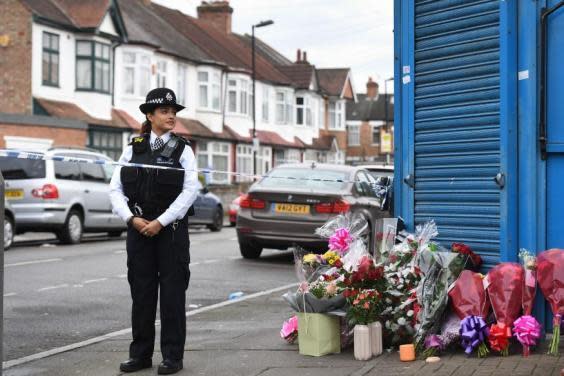With a spike in violent crime, the full effects of austerity are now being felt
Once upon a time there were two ladies, very popular with the public, who were some of the Conservative’s staunchest supporters: Laura Norder and her dear friend Lauren Forcement. Yet, oddly for such a firm and long-standing relationship, it has all gone wrong since the Conservatives returned to power in 2010. For law and order and law enforcement, so far from enjoying their traditional status in Conservative circles, have become estranged, hostile even.
The reasons are not hard to identify. The Conservative (and Coalition) governments have pursued the policy of austerity with such zeal that the police were subject to severe reductions in numbers.
This is not, after all, what Tory ministers are supposed to do. They never have before. When Margaret Thatcher came to power in 1979, and especially after she had consolidated her hold on power in successive elections with landslide majorities, she set about shrinking the size of the state, slashing the bill for state pensions and social security, and generally starving public services of resources, in favour of tax cuts. But the police were exempted.
It was perfectly plain what was going on. Mrs T knew that her economic policies, necessary or not, would inevitably lead to social dislocation, more poverty, more people homeless and in need, and more crime as a result. More inequality too. Brixton, Liverpool, Bristol, Toxteth – they all burned. She once famously remarked that perhaps crime was going up in her time because the British suddenly had much more stuff to nick; the wonders of the age – stolen video cassette recorders, Sony Walkmans, digital watches and microwave ovens couldn’t have appeared in the crime statistics before because they hadn’t been invented, and now the British were prosperous enough to acquire such luxuries in unprecedented quantities. There might have been something in that – but there were also many dispossessed groups in society driven to steal from their neighbours.
Thatcher was also aware that her reforms of industrial relations (ie smashing the trade unions) would meet with violent resistance from mass pickets. The disputes in Wapping and the national miners’ strike confirmed it. The behaviour of the police on those occasions was not always in their best traditions; unlike the general strike of 1926, there were fewer jolly football matches between coppers and strikers, and more gashed skulls, mass battles such as Orgreave, and mounted police charges. The Conservative governments looked after the coppers, by boosting their numbers, their pay and, notoriously in the miners’ strike, their overtime payments.
It was said some officers from London used to brandish their engrossed pay packets at the impoverished miners’ families. Divisive stuff; but because of the unbreakable alliance between the police and the Conservatives, they won. The hard-line attitude the Tories took on IRA terror in those days also pushed the policing bill up across the UK, and increased the strain on the police and the security services. Again, they were all protected from austerity.
The Cameron and May governments, by contrast, have chosen not to favour the police, viewing them as just another pressure group determined to preserve its privileges. Again there is some truth in that: yet the Conservatives’ policy of austerity, whatever its macroeconomic merits, led to predictable increases in crime – in desperate communities with failing schools and collapsing social services, knife crime and robbery are up. It is no accident that these disturbing trends have broadly emerged in this era of vanishing social mobility and opportunities.
Knowing that this would happen – and surely she did understand the consequences of their policies – Theresa May, as home secretary and as prime minister, should have protected police numbers. She should have made sure we had the officers we needed to withstand a period of severe social division. When the riots arrived in 2011, they should have proved no end of a lesson. Yet the lesson was ignored. So now we have crime on the rise, too many knife and gun offences, and more murders on the streets than for decades.
People worry too much about crime, but that is not to say that a responsible government should ignore their worries, and, indeed, ignore the evidence of the statistics and the high-profile problems of stabbings and moped crime. Districts of London, especially, feel the police have given up on them. The authorities have been woefully slow to respond, both to individual cases and, at a ministerial level, strategically.
If nothing else, the voters might be more inclined to vote for a government that did listen and act than one that seemed interested only in making sure that the political classes were provided with bullet-proof limos and police bodyguards. (Though Sajid Javid seems to have ben unusually unlucky in losing his phone to a robber). That’s harsh. Our politicians ought to have protection – the murder of Jo Cox and the plots to murder Rosie Cooper MP and Theresa May all show that. But the country has a right to expect a Tory government to look after the police, and for the police to look after the public – everyone. Laura Norder and Lauren Forcement have been mugged. How could they ever support the Tories again?

 Yahoo News
Yahoo News 

